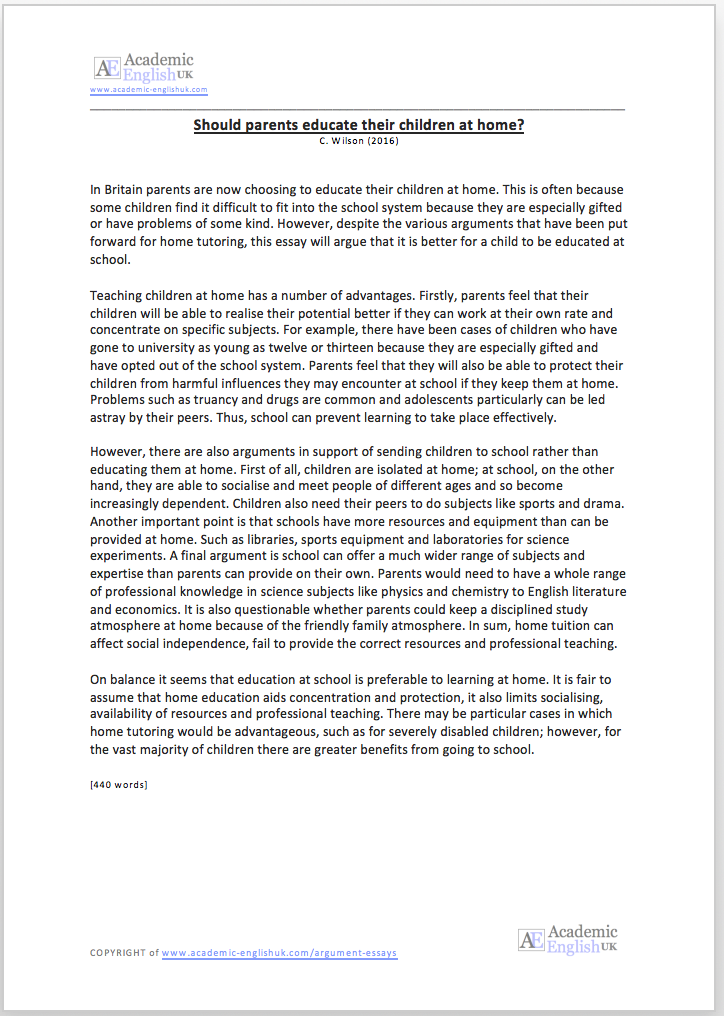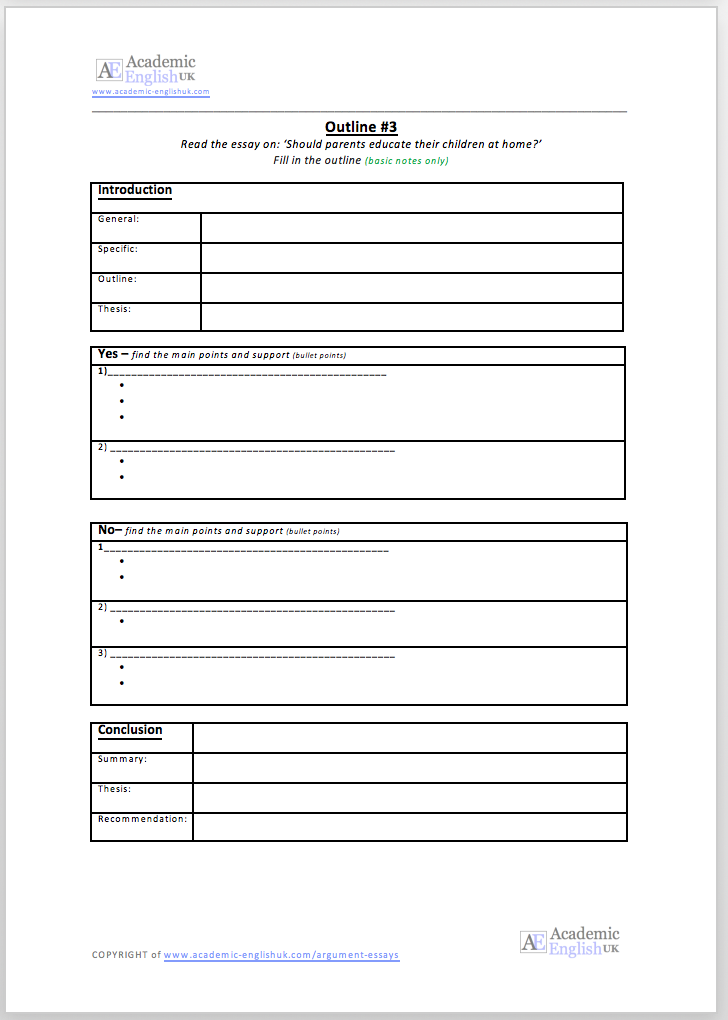
Academic writing Make an argument. Your argument is how you express your viewpoint and answer the question you have been set, using Structure your argument. Guide your reader through your argument in a logical way. Think about what questions your 10/31/ · The word argument is derived from the Latin word “arguer,” which means “to make clear.”. An essential aspect of academic writing is arguing and discussing. This involves proposing a claim and offering a rational reason with help of evidence that strengthens an author’s point of view Academic writing is argumentative writing—instead of simply asserting your own position, however, you need to enter the ongoing conversation, using what others say as a launching pad.—Graff & Birkenstein ()
Structure of an Academic Argument | Fundamentals of Research Writing | Nebraska
The most important voice to get across in your writing is your own; it is how you can show the reader usually your tutor what you are thinking, what your views are and how you have engaged critically with the topic being discussed. You can do this by building an effective and persuasive argument argument in academic writing your reader. Your argument is how you express your viewpoint and answer the question you have been set, using evidence.
Your argument can help you plan the structure of your work and guide you to find the evidence you need to support it. Make sure that your argument runs throughout your writing argument in academic writing that everything you include is relevant to it. Try to sum up your argument in a few words before you start writing and keep checking that it remains the focus argument in academic writing you research and write your work.
Guide your reader through your argument in a logical way. Think about what questions your reader might have. If you can answer these questions through your argument, it will seem more convincing. Present both sides of the debate, along with your thoughts, linking together the different elements. You can then work towards a conclusion by weighing the evidence and showing how certain ideas are accepted and others are rejected, argument in academic writing.
Your conclusion should make clear where you stand, argument in academic writing. Look at the strengths and weaknesses of the different sets of evidence and present these clearly and in a critical way. This will help to show you understand what you have read. Take the evidence into account in developing your own argument and make clear what your viewpoint is. Perhaps your argument has strengths and weaknesses as well — it is fine to acknowledge these, argument in academic writing.
Current methods used to assess divided attention usually involve a variation of the CPT with an additional task included e.
counting or listening to auditory stimuli Salthouse, A serious weakness with this argument is The research suggests You can also use verbs to show your agreement or disagreement with other author's arguments. For example:. The Manchester Academic Phrasebank provides many more examples that you can use in your written work.
Skip to main content University links. For staff For Staff Services A-Z Student Education Service For students Minerva Mobile app For Students. Faculties Faculty of Arts, Humanities and Cultures Faculty of Biological Sciences Faculty of Business Faculty of Engineering Faculty of Environment Faculty of Mathematics and Physical Sciences Faculty of Medicine and Health Faculty of Social Sciences Lifelong Learning Centre.
Other Staff A-Z Campus map Jobs Alumni Contacts Library IT VideoLeeds Leeds University Union. Follow us Facebook Twitter YouTube LinkedIn Instagram ITunes U. Close quicklinks. Search Destination Library site Search the Library's print and online resources All leeds. uk sites. Home Search help Locations and hours Library services Study and research support Special Collections Galleries Contact us.
Library Study and research support Academic skills Writing Academic writing. Show all contents Contents. Make an argument Your argument is how you express your viewpoint and answer the question you have been set, using evidence. Structure your argument Guide your reader through your argument in a logical way. Develop your argument Develop your argument by considering the evidence and drawing your own conclusion. If you are argument in academic writing a range of opinions, try to group them together under different headings.
Include your own voice in your writing Your voice will emerge through your discussion, interpretation, and evaluation of the sources. Here are some ways you can establish your voice in your writing: Make your unattributed not referenced assertion at the start of paragraphs followed by evidence, findings, arguments from your sources.
Part I: Making an Argument - Introduction to College Writing Series
, time: 6:14Academic Arguments - Writing a Paper - Academic Guides at Walden University

Your task when writing an academic argument is very different. For a college research paper, an argument takes a clear stand. Each well-organized paragraph develops the position, driven by direct quotations from the published work of a range of experts. Graham gave these names to seven different levels of a “Disagreement Hierarchy.” 10/31/ · The word argument is derived from the Latin word “arguer,” which means “to make clear.”. An essential aspect of academic writing is arguing and discussing. This involves proposing a claim and offering a rational reason with help of evidence that strengthens an author’s point of view 10/26/ · Although many people think that an argument is a one-sided attempt at persuading somebody of something, using whatever rhetorical tricks they can muster, an academic argument is more like a scientific paper that aims at understanding, not one-ups-manship
No comments:
Post a Comment